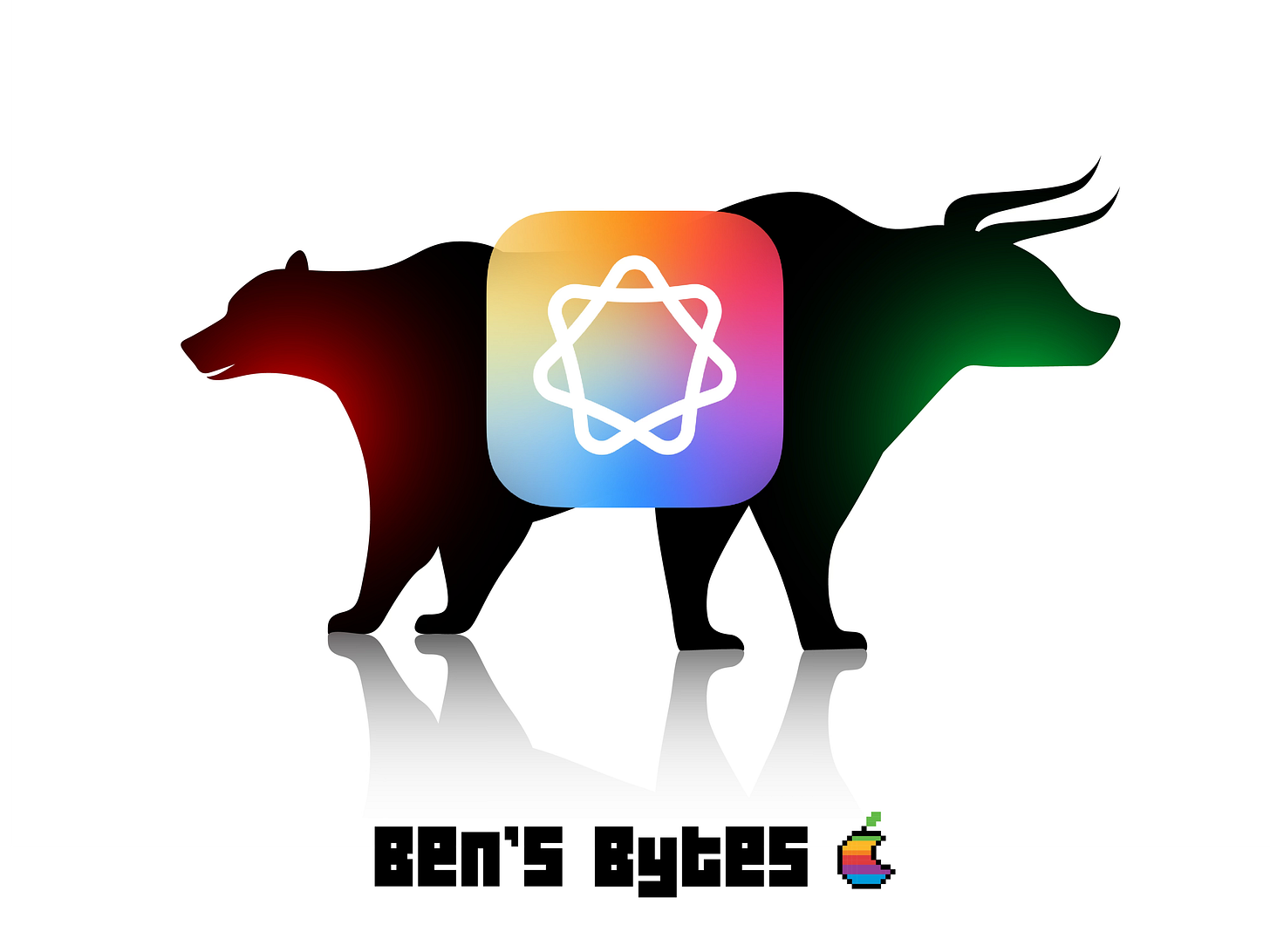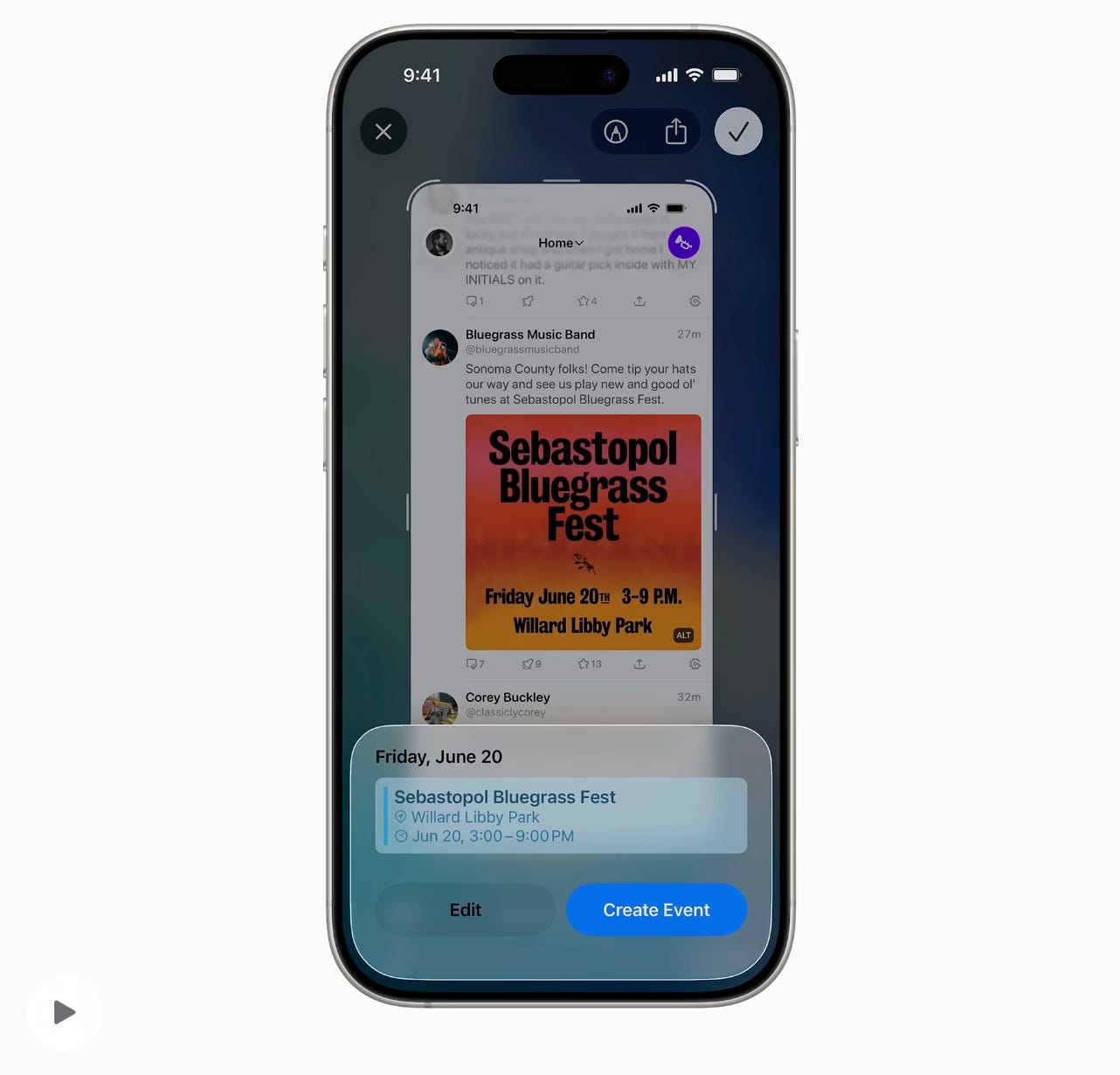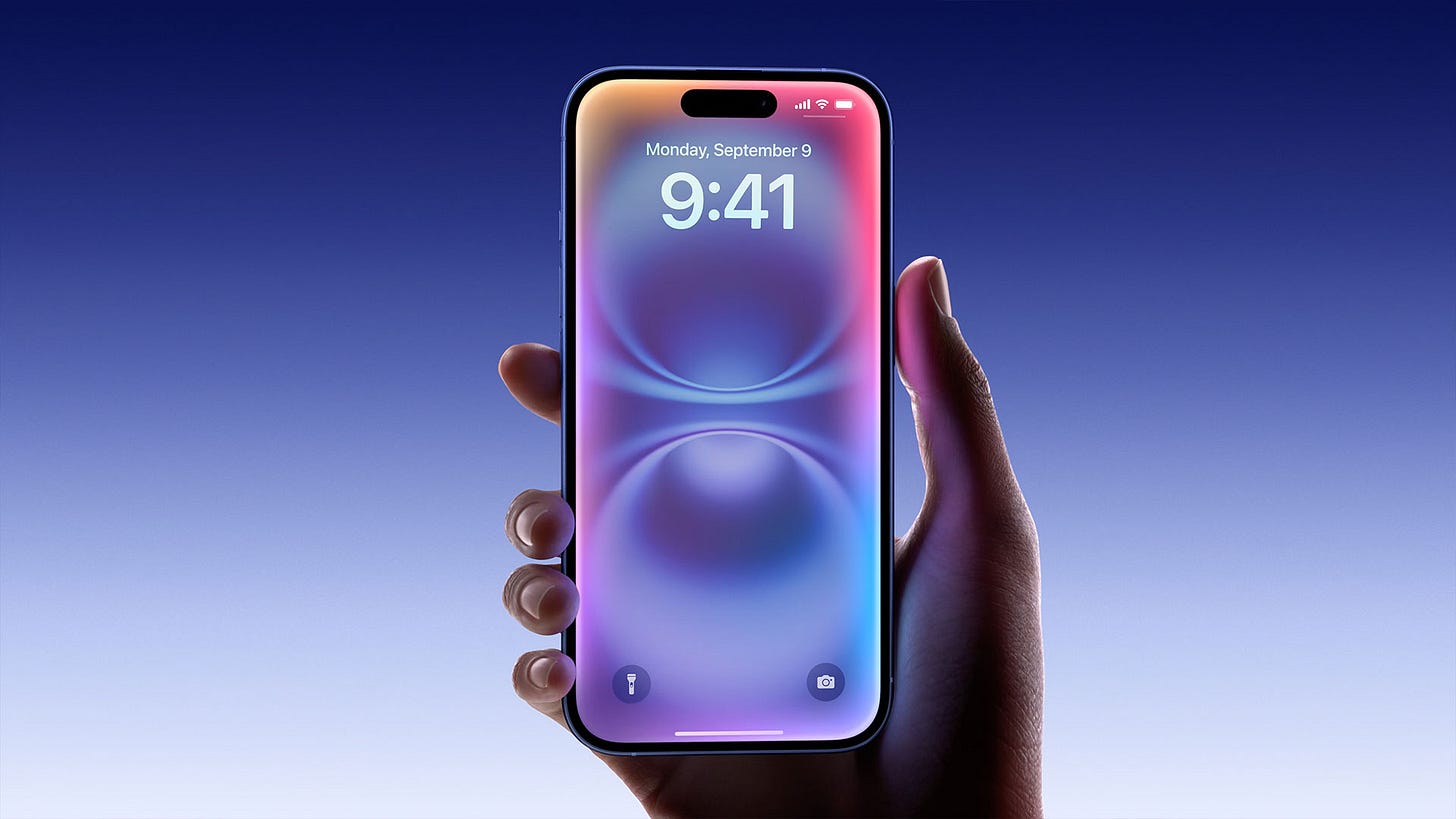The Bull Case for Apple Intelligence
Why Apple Could Still Win in AI
I don’t need to make the bear case for Apple Intelligence… we’re already living it. Apple Intelligence was supposed to be “AI for the rest of us”; instead it’s mostly been AI for none of us. Its initial features — Genmoji, notification summaries, and writing tools — have largely been overlooked by iOS users. Apple’s AI leadership team and vision have undergone dramatic reorgs, with key employees poached by Meta. Most importantly, its tentpole next-generation Siri feature has been delayed indefinitely.
The bear case is clear. Instead, your local neighborhood Apple fanboy will attempt to make the bull case: Apple Intelligence isn’t about beating OpenAI, Anthropic, or Google at the foundational model game. It’s about turning AI into an appliance — invisible, useful, and trusted.
Apple’s play is not research leadership. It’s production leadership. You know the usual refrain:
It didn’t invent the MP3 player, but it made the iPod inevitable.
It didn’t invent the smartphone, but the iPhone redefined it.
It didn’t invent the tablet, but the iPad became the standard.
The bull case for Apple Intelligence is that Apple doesn’t need to out-research DeepMind or OpenAI — it just needs to build the smoothest, safest, and most invisible AI assistant inside the products you already use daily.
Build vs. Partner
That’s the billion-dollar (or maybe trillion-dollar) strategy question for Apple right now. Apple’s whole brand is about tight integration and user trust, but training frontier models costs billions in compute and talent. Yes, it has the cash, but it doesn’t have the AI research culture of OpenAI, Anthropic, or Google DeepMind. Starting behind could mean playing permanent catch-up.
Apple shouldn’t spend tens of billions chasing a GPT-5 competitor. Training foundational models at frontier scale isn’t its game. The smarter path forward is to pick a partner or lean into the right open-source model. Headlines keep surfacing about Apple weighing partnerships with OpenAI, Anthropic, and most recently Google’s Gemini. The moment has come to decide and build.
Privacy remains Apple’s moat, but the dynamics of scale are shifting: open models like OpenAI’s gpt-oss-20b are already small enough to run on a high-end Mac, and it’s only a matter of time before capable models run efficiently on Apple Silicon inside an iPhone. Until then, Apple can commit to a partner and ensure that model runs within its own Private Cloud Compute — the infrastructure layer announced at WWDC 2024 that ensures user data stays secure.
Think of this as Apple’s “AI utility layer” — invisible to the user. As with iPhone cameras (Sony may supply the sensor, but the experience feels Apple), the underlying model could come from elsewhere. What matters is that the AI experience feels seamless, private, and Apple-native. Apple’s skill has always been in turning commodity components into differentiated experiences. The same could hold true for AI: Apple doesn’t need to own the model weights if it owns the user experience.
Why Apple Could Still Win in AI
Distribution Power
Apple ships to over 2+ billion active devices with each iOS update. No downloads, no installs — just a new baseline for what your phone can do. Google’s most recent Android features are impressive, but fragmentation across OEMs slows deployment.On-Device Advantage
Because Apple controls the silicon (A-series, M-series), it can run optimized small models directly on device. That makes AI faster, more private, and in some cases offline.Trust as a Moat
AI assistants are going to read your emails, calendar, photos, and notes. Do you want to give that permission to a startup (or Google/Meta), or to the company that’s spent a decade selling itself as the privacy-first option?The Interface Layer
Apple’s historical strength is not in inventing technology, but in packaging it: iPod for MP3s, iPhone for smartphones, iPad for tablets. Apple Intelligence is positioned to be the iOS-level interface layer for AI.
Beyond the Chatbot
The chatbot isn’t the UX endgame. Nobody wakes up thinking, I want to talk to an AI today. They wake up thinking, I need to get through my inbox, make a plan, remember that date, send that file.
This is where Apple Intelligence shows the most promise. At WWDC 2025, Apple demoed taking a photo of a concert poster, and your iPhone didn’t just “read” it — it extracted the date and location, then offered to add it to your calendar. That’s not an AI demo; that’s an everyday utility.
The real game-changer will be if Apple can ever ship the Siri they promised at WWDC 2024. Today, Siri Shortcuts hint at it, but they’re clunky. Imagine the next version:
“Book me a table for four next Friday at Bar Isabel” → Siri uses Resy.
“Send my accountant last week’s receipts” → Siri pulls them from Files and attaches them to Mail.
“Show me the PDFs that John sent last month” → Siri searches across Mail, Messages, and Files.
If Apple nails app intents, Siri stops being a joke and becomes the universal broker between you and your apps. Now there’s no guarantee it will nail this; this is apparently where delays have occurred, with the LLM version of Siri only having an accuracy rate of about 66%. Every percentage miss is a big deal if you’re trusting your assistant with autonomous tasks. Amazon has also struggled here with Alexa+, showing how difficult it is to get deterministic outputs from a probabilistic LLM.
Other players are circling too. Google is well positioned with Android and the Google Suite of apps, and OpenAI has started down this path by asking you to connect your Google accounts to ChatGPT. But nobody is better placed than Apple, with its App Store control, developer relationships, and user trust.
The Bigger Bet
The bull case for Apple Intelligence is that Apple skips the foundation model arms race and instead builds AI into the fabric of daily life.
Google wants AI to replace search.
OpenAI dreams of AGI.
Apple just wants to make your phone more useful.
If they succeed, AI won’t feel like a separate product. It will feel like Spotlight, copy/paste, or autocorrect — so natural you forget life before it. In my opinion, Apple will not win the model race. But it could still win the adoption race. And in consumer tech, adoption usually matters more.
Here’s What I Read This Week:
Why Did a $10 Billion Startup Let Me Vibe-Code for Them—and Why Did I Love It? | Wired
I talked to Sam Altman about the GPT-5 launch fiasco | The Verge
Apple Fitness Chief Accused of Toxic Workplace Culture and Harassment | The NYTimes
Americans fear AI will take their jobs — but companies can’t quite get it to work | Platformer





